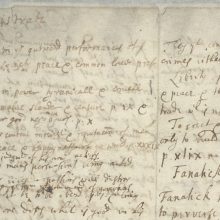
Photo from archive.org
and her ethnographic practice in their midst. As someone who was trained to always situate himself within the context of his own ethnographic account of the lives of others as… Click to show full abstract
and her ethnographic practice in their midst. As someone who was trained to always situate himself within the context of his own ethnographic account of the lives of others as a character in the script, and to even “go native” in order to more deeply and personally understand the lives of those among whom I conduct ethnographic research, it was deeply rewarding and enriching to be invited into the personal thoughts, feelings, and experiences of Byrne as she similarly situated herself as a character in the script of the Church of Antioch and encountered a form of Catholicism that, as for me, was a far cry from the Roman Catholicism with which she was raised. Another most important aspect of Byrne’s The Other Catholics is its significance as an indicator of the future of “religion” in general and how that future may unfold as it encounters rapid and increasingly sophisticated technology and the forces of globalization. Forces that make it possible for the world’s religions, in all of their forms (complex and simple), to either retreat into tribalism and fundamentalism or to advance toward the setting up of permeable boundaries which are capable of absorbing other paradigms of practice, theology, and vision, and incorporating them into more historic and traditional practice, theology, and vision.
Journal Title: Church History
Year Published: 2017
Link to full text (if available)
Share on Social Media: Sign Up to like & get
recommendations!